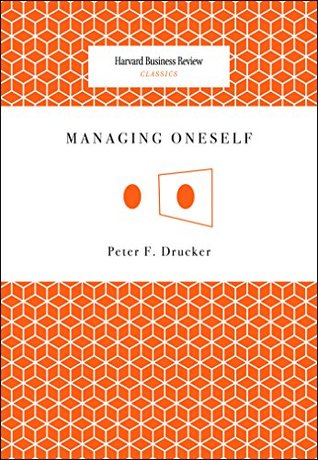More on this book
Community
Kindle Notes & Highlights
WHAT ARE MY STRENGTHS? Most people think they know what they are good at. They are usually wrong. More often, people know what they are not good at—and even then more people are wrong than right. And yet, a person can perform only from strength. One cannot build performance on weaknesses, let alone on something one cannot do at all.
The only way to discover your strengths is through feedback analysis. Whenever you make a key decision or take a key action, write down what you expect will happen. Nine or 12 months later, compare the actual results with your expectations.
I have been practicing this method for 15 to 20 years now, and every time I do it, I am surprised. The feedback analysis showed me, for instance—and to my great surprise—that I have an intuitive understanding of technical people, whether they are engineers or accountants or market researchers. It also showed me that I don’t really resonate with generalists.
Practiced consistently, this simple method will show you within a fairly short period of time, maybe two or three years, where your strengths lie—
First and foremost, concentrate on your strengths. Put yourself where your strengths can produce results.
Second, work on improving your strengths. Analysis will rapidly show where you need to improve skills or acquire new ones. It will also show the gaps in your knowledge—and those can usually be filled. Mathematicians are born, but everyone can learn trigonometry.
Third, discover where your intellectual arrogance is causing disabling ign...
This highlight has been truncated due to consecutive passage length restrictions.
Go to work on acquiring the skills and knowledge you need to fully realize your strengths.
quickly show up in the feedback. For example, a planner may find that his beautiful plans fail because he does not follow through on them. Like so many brilliant people, he believes that ideas move mountains. But bulldozers move mountains; ideas show where the bulldozers should go to work.
Manners are the lubricating oil of an organization. It is a law of nature that two moving bodies in contact with each other create friction.
Manners—simple things like saying “please” and “thank you” and knowing a person’s name or asking after her family—enable two people to work together whether they like each other or not.
Comparing your expectations with your results also indicates what not to do. We all have a vast number of areas in which we have no talent or skill and little chance of becoming even mediocre.
One should waste as little effort as possible on improving areas of low competence.
takes far more energy and work to improve from incompetence to mediocrity than it takes to improve from first-rate performance to excellence. And yet most people—especially most teachers and most organizations—concentrate on making incompetent performers into mediocre ones.
Energy, resources, and time should go instead to making a competent person...
This highlight has been truncated due to consecutive passage length restrictions.
For knowledge workers, How do I perform? may be an even more important question than What are my strengths?
A person’s way of performing can be slightly modified, but it is unlikely to be completely changed—and certainly not easily. Just as people achieve results by doing what they are good at, they also achieve results by working in ways that they best perform.
General Eisenhower showed total command of whatever question he was asked, and he was able to describe a situation and explain a policy in two or three beautifully polished and elegant sentences. Ten years later, the same journalists who had been his admirers held President Eisenhower in open contempt.
Eisenhower apparently did not know that he was a reader, not a listener. When he was Supreme Commander
worst they suffered was boredom. The explanation is that writers do not, as a rule, learn by listening and reading. They learn by writing.
Schools everywhere are organized on the assumption that there is only one right way to learn and that it is the same way for everybody. But to be forced to learn the way a school teaches is sheer hell for students who learn differently. Indeed, there are probably half a dozen different ways to learn.
There are people, like Churchill, who learn by writing. Some people learn by taking copious notes. Beethoven,
“Do you act on this knowledge?” few answer yes. And yet, acting on this knowledge is the key to performance; or rather, not acting on this knowledge condemns one to nonperformance.
Am I a reader or a listener? and How do I learn? are the first questions to ask.
Again and again, I have seen people who were very successful in large organizations flounder miserably when they moved into smaller ones. And the reverse is equally true. The conclusion bears repeating: Do not try to change yourself—you are unlikely to succeed. But work hard to improve the
the outside only after exhausting all the inside possibilities. But her new company believed in first looking outside “to bring in fresh blood.” There is something to be said for both approaches—in my experience, the proper one is to do some of both.
At bottom, there is a conflict between a value system that sees the company’s contribution in terms of helping physicians do better what they already do and a value system that is oriented toward making scientific discoveries.


